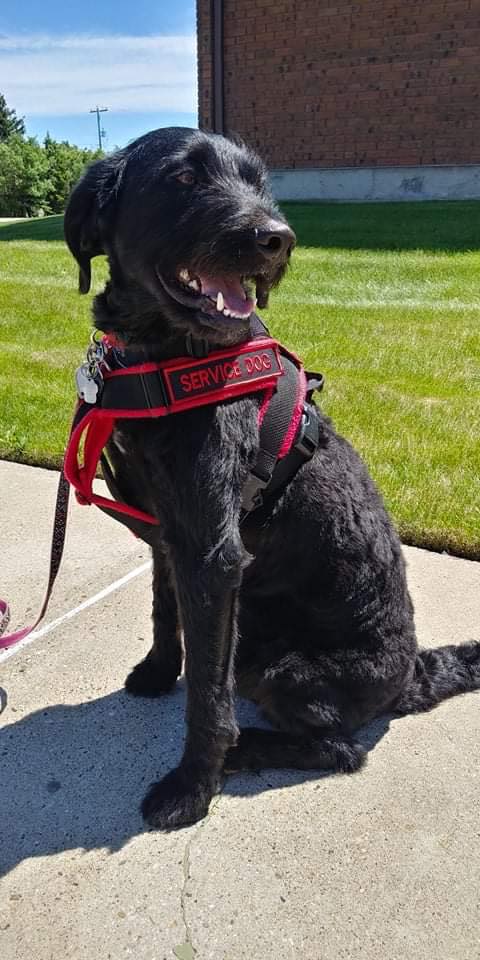
The Importance of Respecting a Service Dog & Their Handler
Share
Service dogs are specially trained to perform various tasks that help people with disabilities navigate their daily lives. These dogs undergo rigorous training to remain focused on their tasks at hand and to ignore any distractions around them. It is crucial to understand the importance of not distracting a service dog, as doing so could interfere with their ability to perform their job, which could be detrimental to their handler's safety and well-being.
Raising a service dog is a significant investment of time, effort, and money. Service dogs go through extensive training, which can take up to two years to complete, and their handlers spend countless hours reinforcing this training. Additionally, the cost of food, medical care, and supplies can add up quickly. Distractions can cause the service dog to lose focus and potentially fail their training, which can be frustrating and costly for the handler. Handlers rely on their service dogs to perform essential tasks, and any interruptions can cause unnecessary stress and financial strain on the handler. It's important to understand and respect the role of service dogs and avoid distracting them to ensure they can perform their duties successfully.
One of the most critical things to remember is that service dogs are working animals, not pets. When a service dog is out in public, they are focused on their handler's needs and tasks. It is essential to respect their role and not approach or pet them without permission from their handler. Petting or distracting a service dog could cause them to lose focus on their task, which could be dangerous for their handler.
Many people may not realize that even seemingly harmless actions can be distracting for service dogs. These include making direct eye contact, calling out to the dog, or offering them food or treats. While these actions may seem friendly and harmless, they can cause the dog to become distracted and disrupt their ability to focus on their handler's needs.
It is also essential to teach children not to distract service dogs. Children can be naturally curious and may want to approach a service dog to pet them or play with them. However, it is crucial to teach children to respect the dog's job and avoid distracting them.
Service dogs come in all breeds and sizes. It's a common misconception that only certain breeds can be trained to be service dogs, but in reality, any dog can become a service dog as long as they have the right temperament and ability to perform the necessary tasks. Service dogs can be large or small, and may come from different breeds, including Labrador Retrievers, Golden Retrievers, German Shepherds, and even Poodles. What's most important is their ability to assist their handler with their specific needs.
It is considered impolite and intrusive to ask someone why they have a service dog. People with disabilities have a right to privacy and should not be required to disclose their medical information to strangers. Additionally, some disabilities may not be visible, so assuming someone does not have a disability simply because they do not appear to have a physical impairment is inaccurate and insensitive. It is best to respect the service dog handler's privacy and focus on the task at hand, rather than questioning the presence of the service dog.
In Canada, service dogs are allowed to accompany their handlers in any public place, including restaurants, stores, and transportation. Under the Canadian Human Rights Act, it is illegal to discriminate against a person with a disability who is accompanied by a service animal. The Accessible Canada Act, which came into force in 2019, also sets accessibility standards for federally regulated entities, including provisions for accommodating service animals. Each province and territory also has its own human rights legislation, which protects the rights of people with disabilities and their service animals. However, it is important to note that service dogs must be well-behaved and properly trained, and handlers are responsible for ensuring their dog's behavior does not disrupt the business or other customers.
In conclusion, not distracting a service dog is crucial for their handler's safety and well-being. It is essential to respect their role as working animals and not approach or distract them without permission from their handler. By following these guidelines, we can ensure that service dogs can perform their tasks effectively and help their handlers navigate their daily lives with ease.